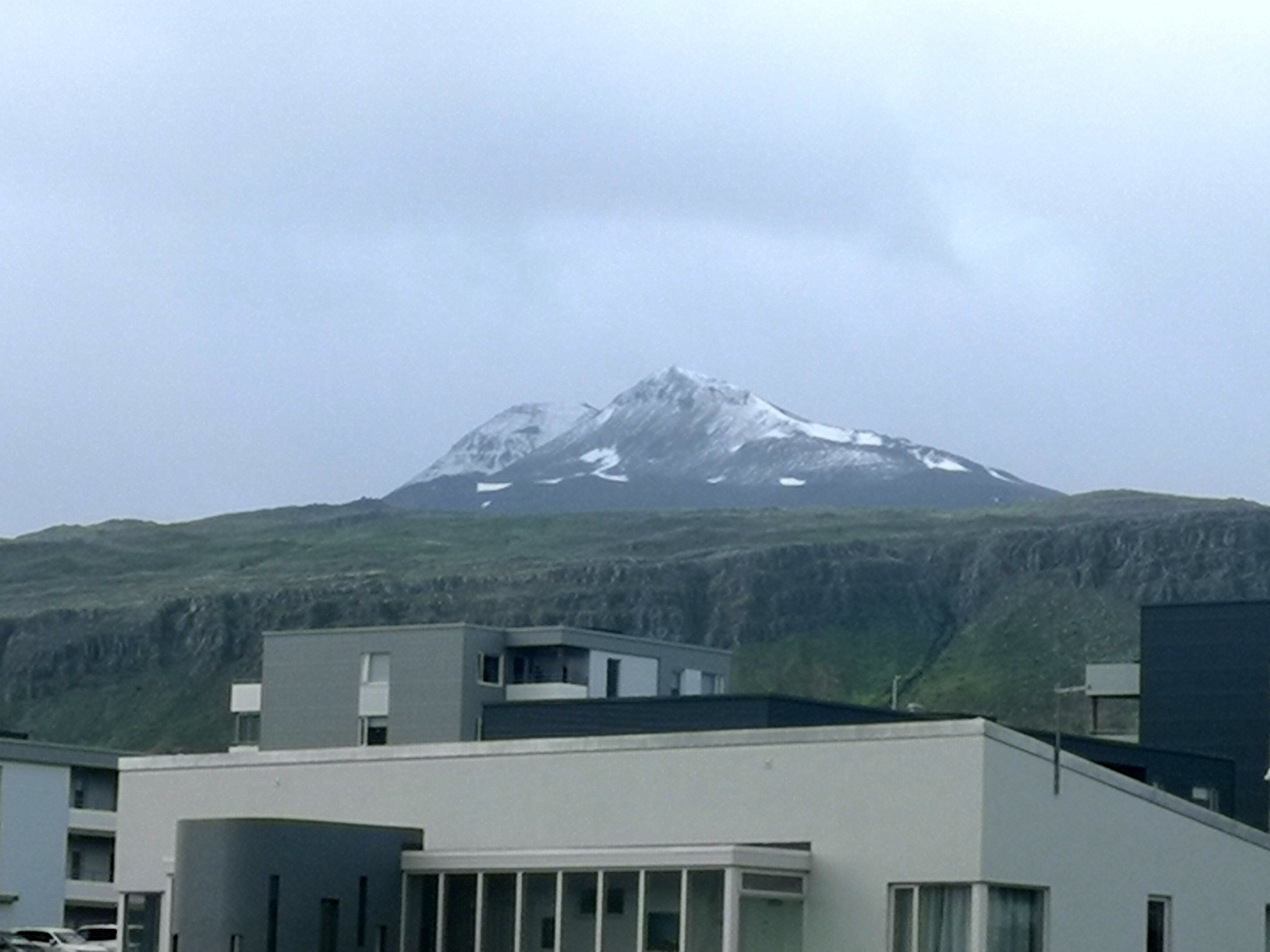While much of Europe is baking under extreme heat, Iceland is experiencing quite the opposite. The Icelandic Meteorological Office has reported torrential rain in the north-western regions and strong gusty winds in the north-east.
In a surprising turn of events, the mountains surrounding Akureyri were covered with snow this morning, an unusual sight for July (snow line at around 700m a.b.s.l). This rare weather phenomenon comes as a yellow weather warning has been issued across Iceland, underscoring severe weather conditions affecting different parts of the country.
Despite this morning's snowfall, Akureyri has seen relatively mild temperatures this month, with an average of 14.3°C (57.7°F). Such fluctuations are particularly strange, considering that July typically enjoys stable conditions with nearly 24 hours of daylight due to the Midnight Sun. For perspective, the average temperature in July 2023 was 9.6°C, which was 1.6°C below the 1991-2020 average.
The broader climate context adds another layer of intrigue. In June 2024, 14.5% of the world's surface experienced record-high temperatures, surpassing the previous June record set in 2023. Globally, 13.8% of the land surface had record-high temperatures, while only 0.3% experienced record-cold temperatures.
Heatwaves have scorched several countries across the Americas, Africa, Europe, and Asia this year. In Mexico and Central America, prolonged heat and drought led to severe water shortages and numerous deaths. This marks 11 consecutive months of unprecedented global temperature records, indicating that 2024 could be yet another year of climate extremes.
During the first week of June, 2024, Iceland experienced severe weather, with heavy snowfall in the north. Route One was closed in many parts due to these conditions. June was particularly cold in Iceland, especially in the north, with temperature anomalies between -0.2°C and -2.7°C. It was the most below-average country globally.
Precipitation has also been notable. Akureyri saw 54.9 mm of rain in June, more than double the average. While 2023 had mostly favorable weather, it was cooler compared to recent years. The average nationwide temperature was 0.1°C colder than the 1991-2020 average, and 0.4°C colder than the last decade's average. The beginning of 2023 and March were particularly cold, though June was exceptionally warm in the north and east.
As climate patterns continue to shift, Iceland's weather this summer serves as a stark reminder of the complex and often unpredictable nature of our global climate system.
Source: Vedur.is
Related news:
Hidden Danger in the Highlands
Weather disturbing flights in Greenland
Joining forces in weather forecasting and climate research
The tags below provide an opportunity to view previously posted related news within the selected category



